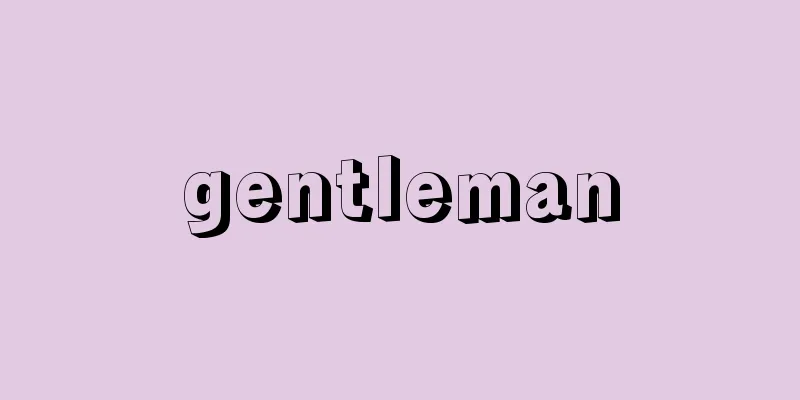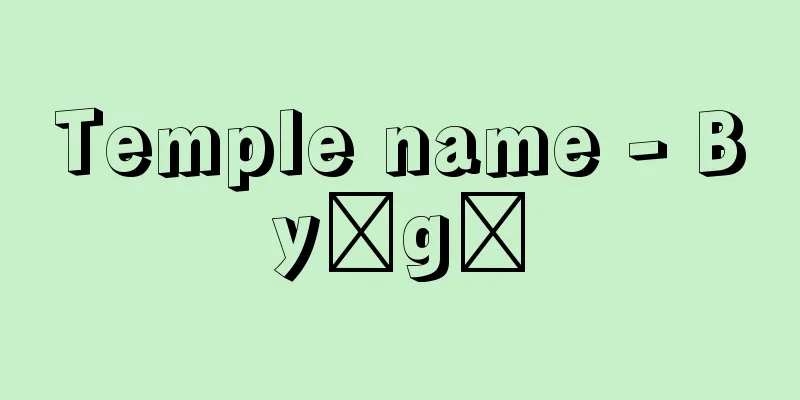gentleman

|
…a social class in England that was established from the end of the Middle Ages to the beginning of the modern era. It has been the dominant class in England since the 16th century, but its specific content has changed subtly over time. Originally, gentlemen were a leisure class that was able to maintain a unique luxury lifestyle, culture, and behavior centered on political activity through income from land rent. Basically, its members were aristocrats with titles such as dukes, counts, counts, and gentry, who were commoners but were allowed to wear a coat of arms with their family crest like the aristocrats. … From [Gentleman]…Today, it is widely used to mean a person who is well-groomed and refined, but originally it comes from the Chinese word 搢(縉) 世 (shinshin), an abbreviation of 士 from 搢 世 (shinshin). 搢(縉) means insert, and 世 (shinshin) means belt. It was a synonym for an official who wore a scepter, a symbol of a person of official rank, in his belt. In modern Japan, it began to be used as a translation of gentleman around 1879, and eventually became established. In the early Meiji period, this word had changed from a concept referring to a specific social class in Europe to a concept referring to a relatively upper-class gentleman with calm and refined manners without rude behavior. In Japan, even though there was a trend of officials being superior to the people, it appeared as an appropriate word to refer to both upper-class officials and merchants in the era of equality of the four classes, and merchants in particular were called 〈 shinsho 〉. … *Some terminology explanations that mention "gentleman" are listed below. Source | Heibonsha World Encyclopedia 2nd Edition | Information |
|
…中世末から近代初頭に成立したイギリスの社会層。16世紀以来のイギリスの支配的階層であるが,その具体的な内容は時代によって微妙に変化している。本来のジェントルマンとは,地代収入によって特有の奢侈(しやし)的な消費生活や教養,政治活動を中心とする行動様式などを維持しえた有閑階級のことである。基本的には,公侯伯子男という爵位をもつ貴族と,身分的には庶民であるが,貴族と同様に〈家紋つきコートcoat of arms〉の使用を認められていた〈ジェントリーgentry〉とがその構成員であった。… 【紳士】より…今日では身だしなみのよい上品な人を広くさすが,本来,搢(縉)紳(しんしん)という中国語からきており,搢紳の士を略したもの。搢(縉)は挿,紳は帯を意味し,官位にある者の象徴である笏を帯に挿していた官吏の代称であったが,近代日本ではジェントルマンgentlemanの訳語として,1879年ころから使われはじめ,やがて定着した。明治初年にはこの言葉はヨーロッパでも特定の身分層をさす概念から,粗野な振舞いのない穏やかで洗練されたマナーの,比較的上層の士を意味する概念になっていたが,日本でも,たとえ官尊民卑の風潮があるとはいえ,四民平等の時代に対応して,上流の官員と商人の双方を一括して呼ぶ適当な言葉として登場,とくに商人については〈紳商〉と呼ばれた。… ※「gentleman」について言及している用語解説の一部を掲載しています。 出典|株式会社平凡社世界大百科事典 第2版について | 情報 |
Recommend
Richtfest
…In modern Japan, construction ceremonies are not...
Cigoli
…This period (1580-90) is considered the rise of ...
Pan‐Africanism
Pan-Africanism is an ideological movement that was...
《Vita Caroli Magni》 (English notation) VitaCaroliMagni
…Author of the Vita Caroli Magni. Latin name Egin...
"A Walk of the Viennese Poet" - A Walk of the Viennese Poet
…He attended the Frankfurt National Assembly in 1...
Sino-French War
A war fought between China and France from June 1...
Obstruction of business - gyomubougaizai
It refers to the crime of spreading false rumors ...
Yoshiwa [village] - Yoshiwa
A village in Saiki County, on the western edge of ...
Welch, L.
…Adventure novels also developed through J. Masef...
Adam's apple
… [Laryngeal cartilage] The shield-like cartilage...
Horio Clan
A branch of the Takashina clan. During the Sengoku...
Cagayan [River] - Cagayan
The Philippines is a river in the northeastern par...
Hokkaido Takushoku Bank [Stock] - Hokkaido Takushoku Bank
The first city bank to go bankrupt. Established as...
Zentner
… Although it was made in a completely different ...
Peiwen Yunfu - Peiwen Yunfu
A Chinese dictionary with 106 volumes (later revi...









